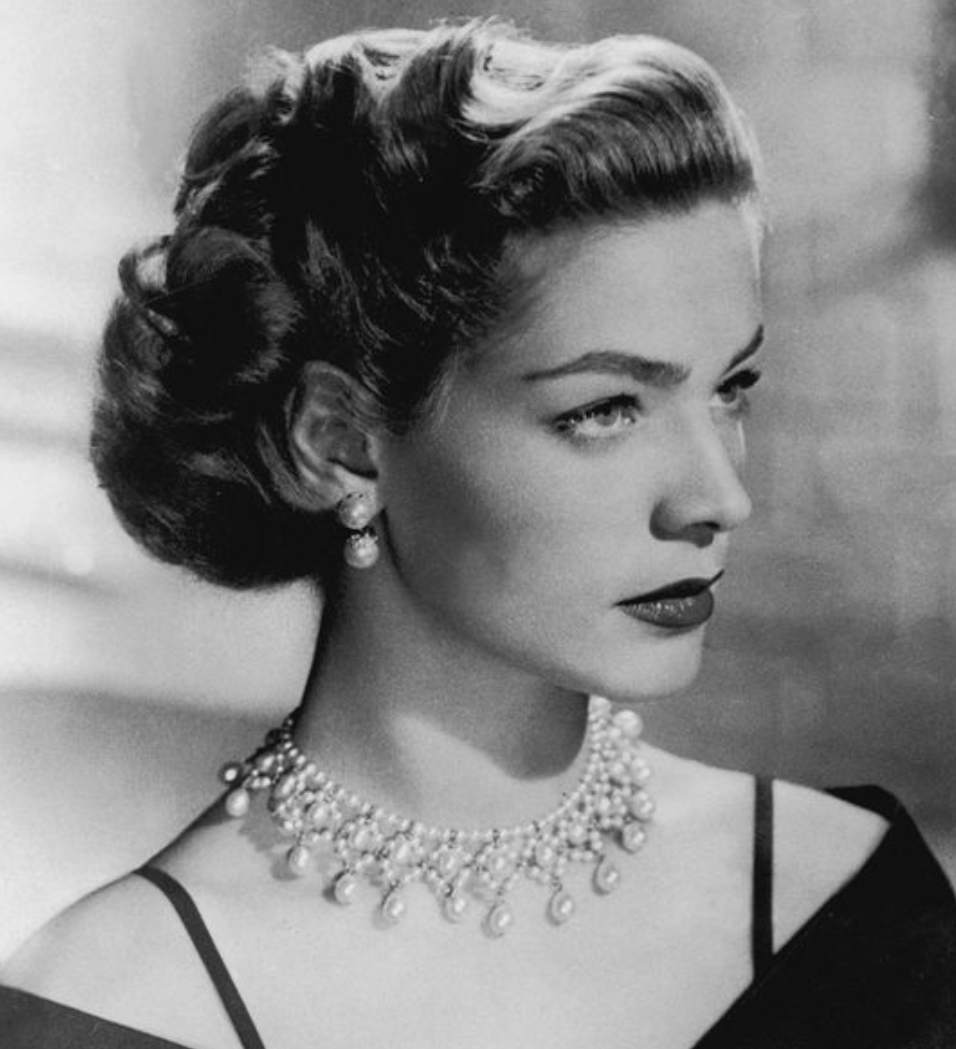SEX, SHOCK, AND SELF-JUSTIFICATION
- helenspetkoff
- Sep 3, 2024
- 6 min read
Updated: Oct 21, 2025
Why Henry Miller’s “Sexus” Falls Short of Greatness

I wanted to like Mr. Miller.
I wanted to like him the way one wants to like a neighbor. After all, he was one of mine—a compatriot of fire escapes, smoking asphalt, and roaring trains at night. And truly, there is no better writer to describe New York. His prose echoes that old city hum, its vulgarity and splendor, distilling a unique, gritty kind of glamour into one red-hot sentence after another.
Indeed, Miller was a great painter of words. That is understood when, unwillingly, you picture in your mind a man shagging a legless model. Or a man helping a drunk woman in her defecation. Or— his pièce de résistance — an analingus session that ends with our hero crumpling the girl into the ground.
Yes, Henry Miller is unapologetically savage. His characters writhe and moan and thrust themselves into the mess of living like it’s the only honest thing to do. He digs deep into their flesh, pushing until some sickening soil squeezes out. And his prose sticks to you. Not in a romantic sense, but like the heat of August in Hell’s Kitchen. It is viscous, brutal, invasive. But genius rarely lies in prose itself, ready to be grasped like some coin between the cushions. Often, it is hidden in the deeper currents that run beneath the page, in those subtle intellectual ans spiritual provocations that put you face to face with your own humanity. And this is what I found missing in this work.
Because once you strip away the shock, the sweat, the little jabs of intellectual wit that land in the mud like cold splashes of water, there is little left to be desired. I wanted to find more, some thread of wisdom that justified its filth. And yet, for all its brilliant energy, spectacular humour, manic depictions of sex and dirt and existential dread, I couldn’t shake the feeling that I’d waded through a swamp for gold, only to come up with a handful of slime.
Let me sum it up for you.
Set against the backdrop of 1920s and ’30s New York, Miller gives us a rollicking, graphic, unexpurgated Everyman Odyssey. At the beginning he has a steady job. He is thirty-three years old, part of bottom-tier management in a gigantic monopoly (Western Union). He is married and has a child. But he is ferociously determined to live “freely” in a world enslaved by civilisation. He is the Anti-Capitalist. When he needs money he grabs it from anyone handy, when he has money he wastes it like confetti. The portraits he paints are incredible. His eye for detail is matchless. He skewers women, is mercilessly racist, homophobic, and misogynistic. He understands every scam, every con, every loathsome human impulse. Yet his generosity appears unexpectedly, as with Melanie (Maude’s dim-witted friend) or Ghopal, the syphilitic Indian servant.
The closest thing to a plot is his evolving marital status. A struggling writer, Henry frees himself from a loveless marriage and begins an affair with the enigmatic Mona. Mona (based on Miller’s second wife, June) becomes the elusive object of Henry’s sexual obsession. Through her, Miller presents sex at the core of an almost philosophical revolt.
And this is what I found the work to be. A revolt, a quest for emancipation, albeit not a fruitful one.
As a tailor’s son (and first-generation intellectual), Miller certainly has had his share of frustrations. Sex, I think, is tied to these frustrations, as a sort of barrier to be surpassed. But not in any way, but a European kind of way. Threesomes, infidelity, no inhibitions! Needless to say, he is obsessed with Europe. And yet, I couldn’t help but notice the signs of a provincial trauma. Those markers of uneasy inheritance. And whilst in some cases it manifests as a yearning for tea parties and immaculate manners, in others, it surfaces as a type of radicalness. An exaggeration, at all costs, of everything that is NEW, ORIGINAL, SHOCKING! In that sense, it is often difficult to take Miller seriously as what he is so hard trying to be—an intellectual. He is too loud, too desperate to declare his defiance. What strikes me is not a man in love with life, but a man furiously seeking to patch up his lacks. His gestures often feel less like genuine throes of passion and more like the moans of someone terrified of what might settle in the silence. This was evident to me in the ending, where he imagines himself as a wounded, humiliated dog. It is very sad. And funny.
I found myself drifting throughout all of it—sometimes amazed, often amused, often repulsed, then suddenly struck by a flash of inspiration or melancholy. Much like life, the novel resists predictability. It's chaotic and unsettling and, at times, wildly entertaining.
Lastly, I will resist a boiling temptation. I will not lament the misogyny: the objectification of women, the flat, one-dimensional sketches they become, whilst the men are rendered with such opulence, with inner lives that pulse and ache and burn. (A neurotic, scheming psychoanalyst name Kronski is wildly more likeable than Mona, the love of his life.) Nor will I dwell on the hollowness of his relationships, the taste of nothingness that seeps into every exchange, like the air in an abandoned room. I will spare you the chore of sifting through another rant of righteous whining.
Instead, after reading Miller’s work, there are two far more important questions that I wish to probe: Is freedom from social constraints really emancipation? And does intellect (or talent) justify immorality?
Is freedom from social constraints really emancipation?
As I said before, Henry is determined to live as a “free” man. What does this mean? It means severing the ties to anything that resembles convention—marriage, duty, even the smallest nod to common sense. It’s all in the name of his self-styled emancipation: refusing the ordinary, binding cords of society! (Does anyone else hear a great big yawning echo in their head?)
Unfortunately for our author, his premise is entirely false. And now please excuse the following digression, as I attempt to prove my point:
If (and only if) emancipation is a process of liberation (a breaking of chains so to speak), then it cannot exist simply as a wish on the wind. It must be subject to JUDGMENT and COMMON SENSE, as any other act of liberation. Freedom, like all privileges, is never — as many mistakenly believe—a virtue in and of itself. It is not some pure, untouched force that exists for the good of all who touch it. It can, just as well, be the source of terror and chaos, as a fountain of joy and autonomy. A double-edged sword, mastered only by judgment. It is only when judgment stands as gatekeeper (often at the expense of tempering ourselves) that we can truly begin to speak of freedom. Judgment is what gives form to our freedoms, what shapes them into something other than a wide-eyed, untamed animal. Without it, emancipation is just a fancy word to comfort us, whilst we evade all those duties that come along with the burden of freedom.
And that is the difference between man and animal — that man is free THROUGH his judgement, not FREED from judgement. It follows then, that living by virtue of one’s whims and appetites is a form of glorified, pleasurable bondage, but bondage all the same. It has nothing to do with freedom and emancipation.
Sorry, Henry.
Does intellect justify immorality?
Which brings me to my second point. Because, yet again, lurking in our novel, masquerading as emancipation, is a failure in sophistication. A failure to behave and refrain. A barbaric absence of taste parading itself as some original, bohemian, avant-garde bravado! Basically, our Hero would love nothing more than to live in a world where people shit themselves and laugh it off, then dip some sticks into the thing and paint a work of art!
This is painfully clear every time he borrows money from his friends without any intention of restituting it. Or when he visits an old girlfriend, not for any meaningful reunion, but to fill his stomach and mock her for sport, before flooding her toilet and fleeing the site. In fact, the novel is riddled with these moments of misplaced, smug defiance. Of course we are supposed to find it charming and excuse him. He is, after all, a man who’s read Faulkner, Joyce, The Odyssey!
And this is the intellectual’s dexterity: to recast transgressions in the service of some higher perspective. But here, in this lofty stratosphere, is where the fantasy crumbles. It is, of course, nothing short of absurd. Because to THINK truly, to think deeply, is not to transcend morality, but to see it ever more clearly, to understand its fragile significance in our underlying animal nature.
The truth is, intellect without morality is the opposite of emancipation. It is retrogressive. It becomes a tool for self-justification, a way to aestheticize barbarity through the devices of language. And that is what I found this work to be, even under a fabulous facade of first-class writing. A six-hundred-fifty-four page exercise in sophistry.
I will conclude briefly. There is a wonderful little proverb Romanians like: Do as the priest says, not as the priest does. Comparably, and by all means, do read Henry Miller for the sheer literary pleasure. If, however, emancipation is your goal, do yourself a favor and stick with the Russians.






Comments